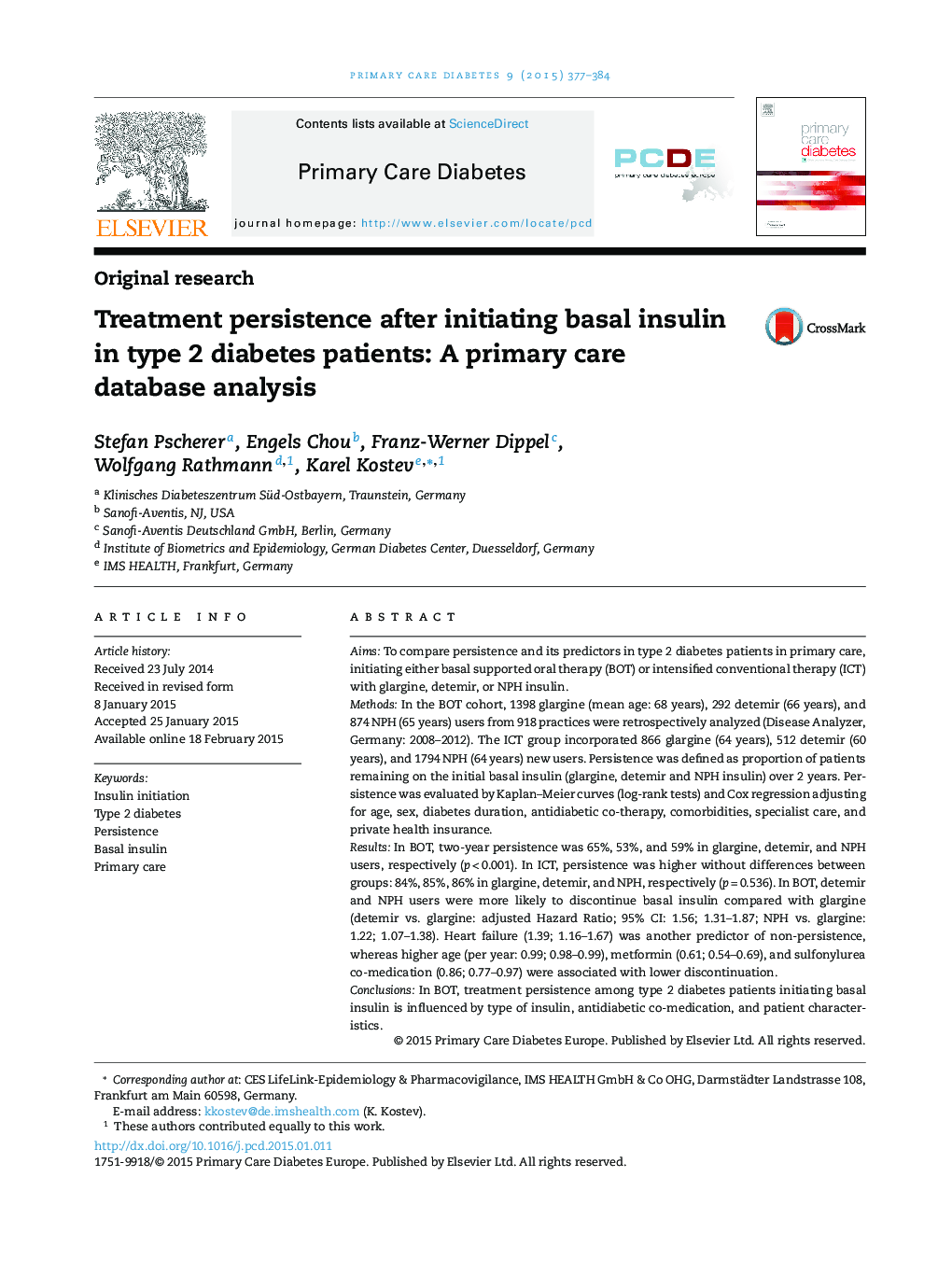| Article ID | Journal | Published Year | Pages | File Type |
|---|---|---|---|---|
| 5871248 | Primary Care Diabetes | 2015 | 8 Pages |
â¢Persistence of basal insulin use in type 2 diabetes patients was described.â¢Risk factors for poor persistence was determined.â¢Treatment with insulin glargin was associated with lower discontinuation.â¢Metformin und sulfonylurea comedication were predictors for better persistence.
AimsTo compare persistence and its predictors in type 2 diabetes patients in primary care, initiating either basal supported oral therapy (BOT) or intensified conventional therapy (ICT) with glargine, detemir, or NPH insulin.MethodsIn the BOT cohort, 1398 glargine (mean age: 68 years), 292 detemir (66 years), and 874 NPH (65 years) users from 918 practices were retrospectively analyzed (Disease Analyzer, Germany: 2008-2012). The ICT group incorporated 866 glargine (64 years), 512 detemir (60 years), and 1794 NPH (64 years) new users. Persistence was defined as proportion of patients remaining on the initial basal insulin (glargine, detemir and NPH insulin) over 2 years. Persistence was evaluated by Kaplan-Meier curves (log-rank tests) and Cox regression adjusting for age, sex, diabetes duration, antidiabetic co-therapy, comorbidities, specialist care, and private health insurance.ResultsIn BOT, two-year persistence was 65%, 53%, and 59% in glargine, detemir, and NPH users, respectively (p < 0.001). In ICT, persistence was higher without differences between groups: 84%, 85%, 86% in glargine, detemir, and NPH, respectively (p = 0.536). In BOT, detemir and NPH users were more likely to discontinue basal insulin compared with glargine (detemir vs. glargine: adjusted Hazard Ratio; 95% CI: 1.56; 1.31-1.87; NPH vs. glargine: 1.22; 1.07-1.38). Heart failure (1.39; 1.16-1.67) was another predictor of non-persistence, whereas higher age (per year: 0.99; 0.98-0.99), metformin (0.61; 0.54-0.69), and sulfonylurea co-medication (0.86; 0.77-0.97) were associated with lower discontinuation.ConclusionsIn BOT, treatment persistence among type 2 diabetes patients initiating basal insulin is influenced by type of insulin, antidiabetic co-medication, and patient characteristics.
